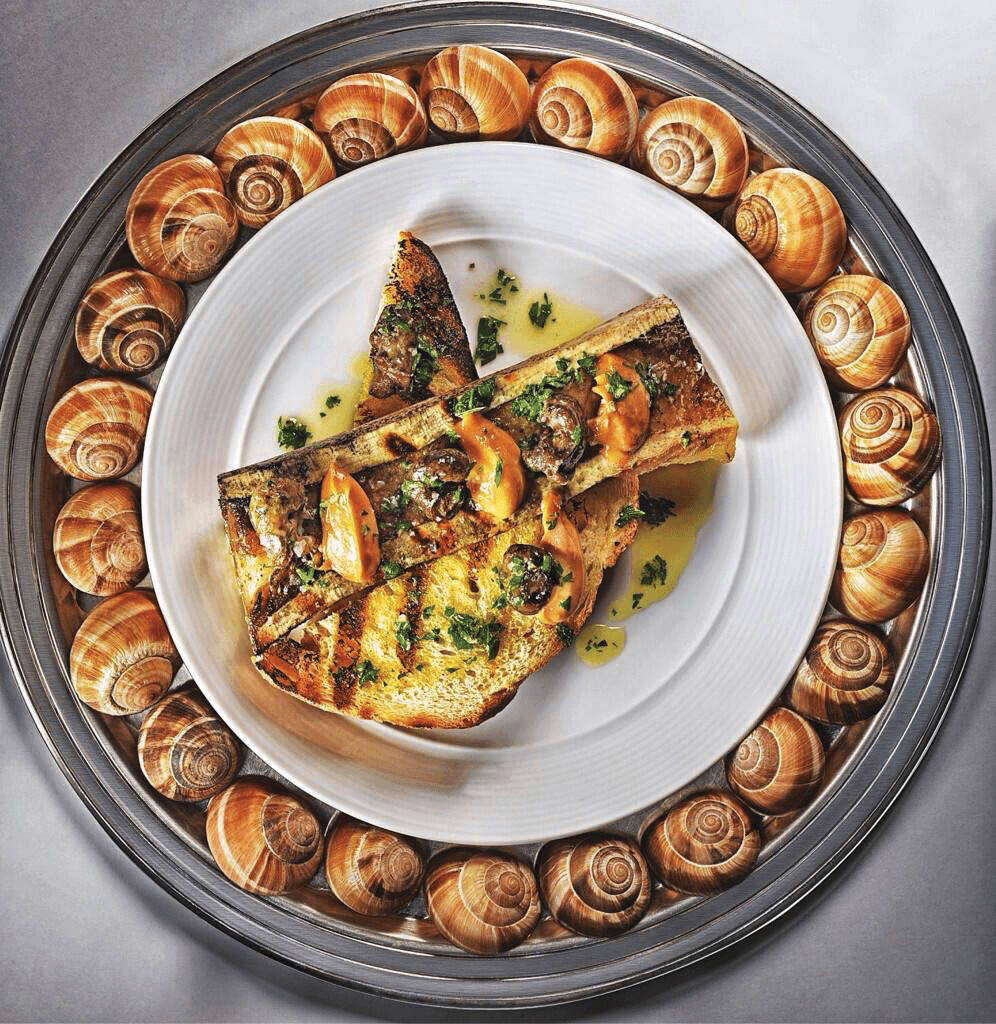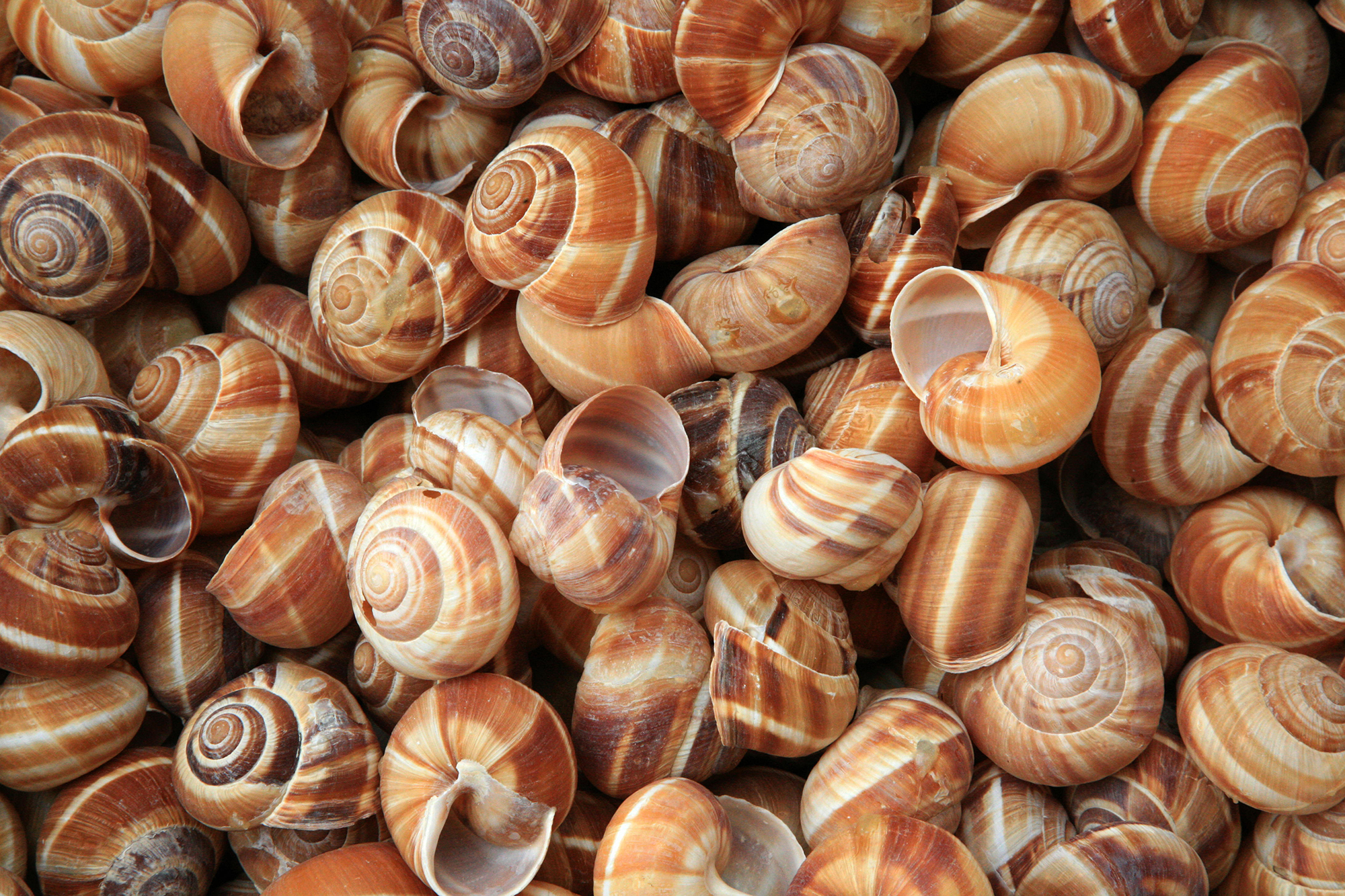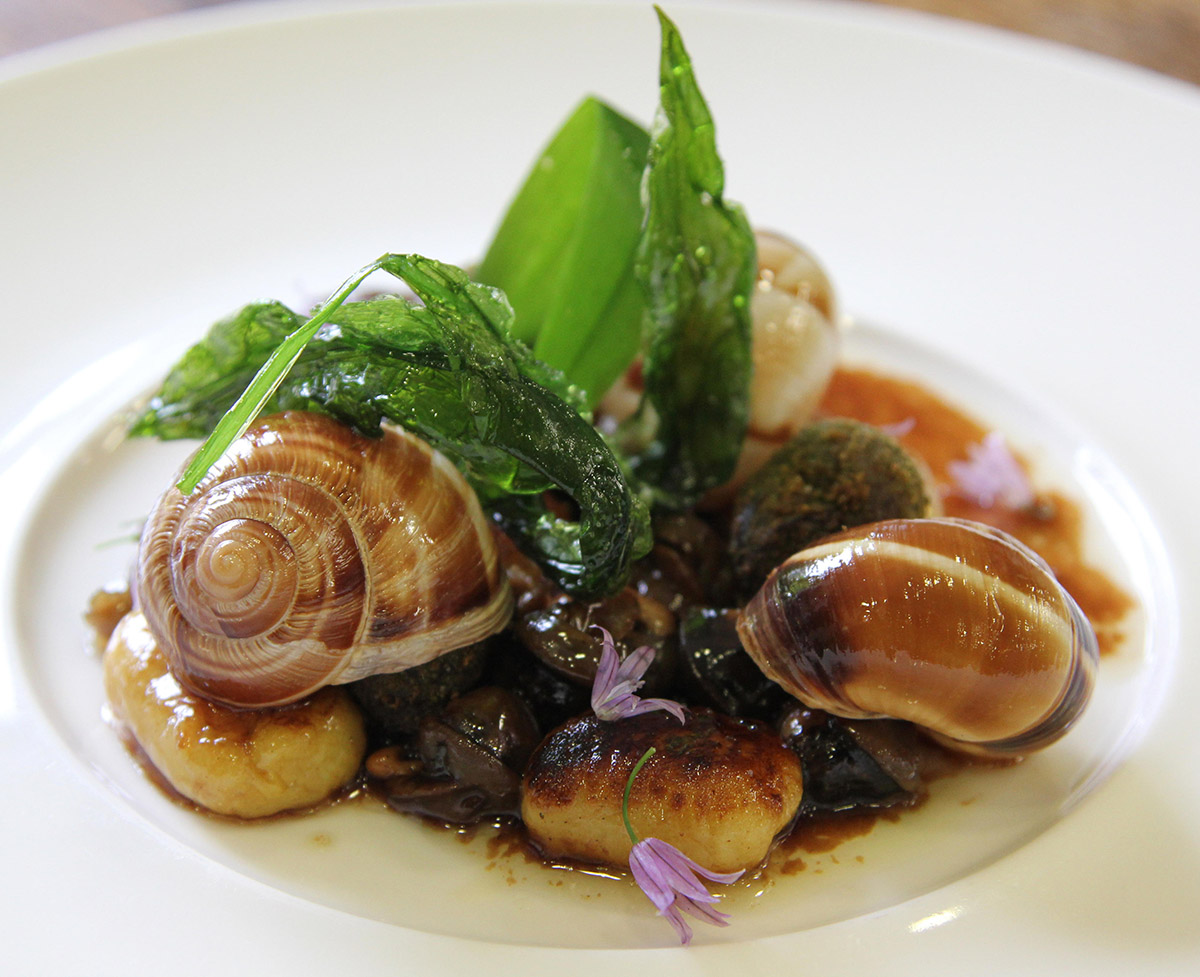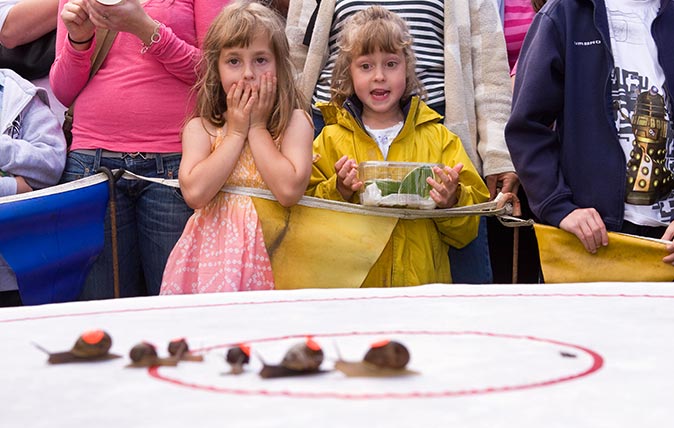Tom Parker Bowles: Why Dorset snails are as good (if not better) than French ones — and a recipe to prove it
Snails might forever be associated with French cuisine, but the slippery little suckers bred on these shores are rivalling the best Bordeaux has to offer, says Tom Parker Bowles.


'It has been argued that the national food forms the national character,’ thunders Frederick W. Hackwood in Good Cheer, ‘in proof of which have often been put forward the contrast between the smooth, slippery volatile character of the soup-, snail- and frog-eating Frenchman and the heavy, stolid and imperturbable character of our own beef- and pudding-eating countryman.’
Recipe: Dorset snails with bone marrow and toast
He may have been writing in 1911, but there seems to be precious little evidence of any good cheer. Rampant and misguided culinary nationalism aside, the French are indelibly and eternally associated with this delectable gastropod. Paris wouldn’t quite be Paris without a dozen of the beauties, ordered at some favourite, faded brasserie, drenched in garlic butter and served so hot that they blister the tongue and flay the skin from the roof of your mouth. In the best possible way.
Those from Bordeaux are always said to be the finest, Helix pomatia, fed on vine leaves and at their fattest and sweetest in winter, sealed in their shell during hibernation. However, as Len Deighton (yes, that Len Deighton — and his food writing is every bit as thrilling as his spy stuff) points out in ABC of French Food: ‘There is a lot of arrant nonsense talked and written on the subject of snails. Most of the European varieties are equally good to eat; it’s the preparation of them prior to cooking that makes such a difference.’ He then goes on to tell the tale of an English friend, who cooked garden snails: ‘They were excellent.’
I couldn’t agree more. Because, a few days back, I devoured some of the best snails — pert, succulent and subtly flavoured — I have ever tasted. And they came not from Bordeaux or anywhere Gallic at all. Rather, somewhat closer to home. Dorset, to be precise.

‘We started in 2006, after I had seen Gordon Ramsay’s F Word on television, when he visited a snail farm in Devon,’ recalls Tony Walker of Dorset Snails. ‘On the programme, it was mentioned that the snail farmer was available for daily courses, so Dad and I went to the farm in Devon. The rest is history!’
I’m not alone in my adulation. Angela Hartnett, Michelin-starred chef and restaurateur, tells me they are ‘as good as the French’. Chef and presenter of Saturday Kitchen Matt Tebbutt is more effusive still: ‘We used them at The Foxhunter, my old restaurant, and adored them. Far better than any you’d find in Bordeaux.’
Sign up for the Country Life Newsletter
Exquisite houses, the beauty of Nature, and how to get the most from your life, straight to your inbox.
Before they started the business, Tony was a kitchen designer, whereas David and Jennie, his parents and partners in Dorset Snails, had a pub in Hampshire. The first years were hardly easy. ‘Definitely not,’ he admits. ‘The information we had been given was, at best, sketchy and there was no information anywhere on the internet. Our breeding systems were built on a trial-and-error basis.’
They use Helix aspersa maxima (found in Mediterranean regions) and it took two years of experimentation to get the feed right. It now consists of ‘various grains, calcium carbide, powdered milk and brewer’s yeast’. Unlike other snail farmers, Dorset Snails operates indoors, which means they aren’t restricted to a single annual harvest. In normal times, the company holds about two tons of stock, some 150,000 snails in hibernation.
‘With the outdoor system, it is also very difficult (perhaps even impossible) to obtain an even growth rate,’ explains Tony. ‘And chefs required a consistency in size and quality.’ He believes Dorset Snails is the only UK company that can offer freshly prepared snails on a daily basis.

Once snails have reached the correct weight (between 15g–18g), they are purged by giving them only water for seven days and transferred to the processing unit, where they are killed, blanched, deshelled and hung in batches to be dried — ‘which, done properly, improves the quality of the meat’. The snails are then cooked for three hours at 96˚C in a decent stock.
‘The problem with tinned snails is that, after being sealed in the tin — usually with brine — they are cooked for 20 minutes at 260˚C. Snails require slow cooking,’ reveals Tony. Anything too rapid and at too high a temperature creates ‘tough and chewy snail meat without any flavour’.
This attention to detail has built an enviable client list. ‘Our very first customer was Antony Worrall Thompson, during 2008, and, since then, we have supplied snails to hundreds of restaurants, hotels and gastropubs throughout the UK.’ These include a veritable who’s who of the British gastronomic world, with everyone from Gordon Ramsay and Marco Pierre White to Rick Stein, Jamie Oliver, Clare Smyth, Tom Kitchin, Hélène Darroze and Jason Atherton.
Dorset Snails also used to produce snail caviar, the flavour of which is said to be subtle and earthy, with a whisper of wood. However, it’s a niche product at the best of times and, as the only real market is the restaurant industry, production has been on hold since March 2020 — but it will be back. In the meantime, forget those dreary tinned snails and embrace the fresh. Not so much Vive la France as ‘Dorset born and bred’.
Recipe: Dorset snails with bone marrow and toast
Ingredients
Serves two
- 200g butter
- 2 garlic cloves, finely chopped
- 4tbspn finely chopped parsley
- 24 cooked Dorset Snails
- 8 pieces of bone marrow, cut horizontally to 3in in length (ask your butcher to cut the bones
- for you)
- 4 slices of hot toast
Method
Take the butter out of the fridge and allow it to soften. Beat in chopped garlic and parsley.
Add enough garlic-and-parsley butter to a saucepan to heat the snails gently. Remove from the heat and keep warm.
Heat an ovenproof frying pan on the hob until very hot, then sear the marrow in the centre of the bones until nicely browned.
Transfer the frying pan to the oven and cook for 4 minutes at 180˚C/ 350˚F/gas mark 4. Put the bone marrow on the toast, add the snails and spoon over the remaining garlic butter.

Ready, steady, SLOW! The wonderfully eccentric (and very British) world of competitive snail racing
Summer in the British countryside brings with it all sorts of unusual events and celebrations – and they don't get any
Tom Parker Bowles is food writer, critic and regular contributor to Country Life.
-
 Designer's Room: A solid oak French kitchen that's been cleverly engineered to last
Designer's Room: A solid oak French kitchen that's been cleverly engineered to lastKitchen and joinery specialist Artichoke had several clever tricks to deal with the fact that natural wood expands and contracts.
By Amelia Thorpe
-
 Chocolate eggs, bunnies and the Resurrection: Country Life Quiz of the Day, April 18, 2025
Chocolate eggs, bunnies and the Resurrection: Country Life Quiz of the Day, April 18, 2025Friday's quiz is an Easter special.
By James Fisher